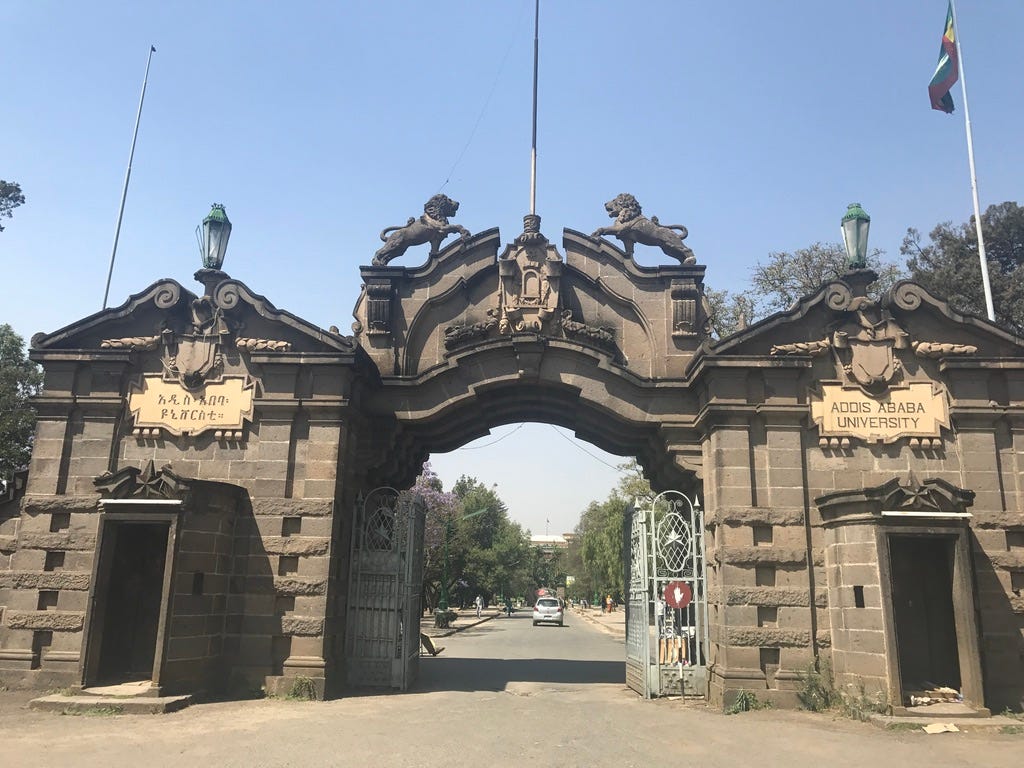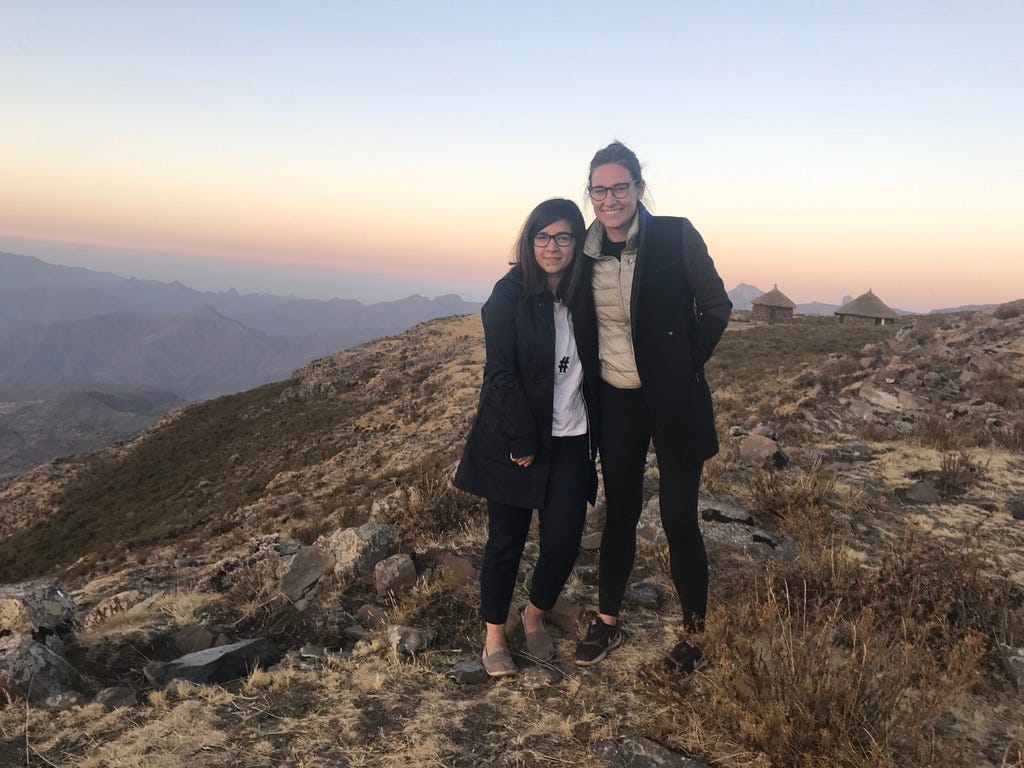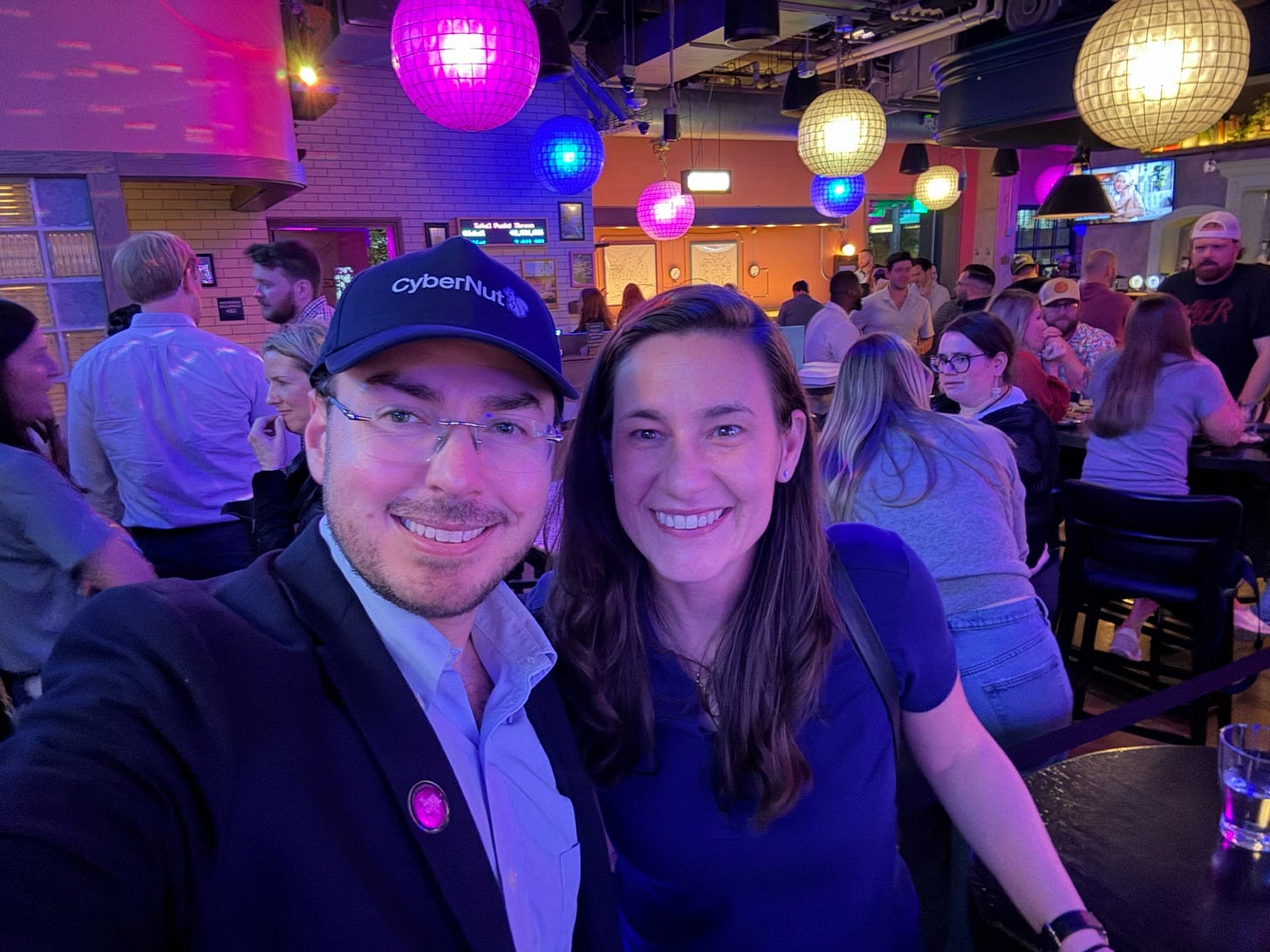Dear Friends,
Attempting to track the news from Washington over recent weeks has been a head spinning exercise for all who have tried - or at least that is the sense that I get from conversations across the political and investing spectrums. I have found a bit of the synthesis helpful, i.e., even if we do not know how each issue will ultimately land, the direction of travel is clear.
I’m short on investing links this week, but I have tried to share a story instead.
Today's Contents:
Sensible Investing
USAID, Delivery, A Story
Song of the Week: Put It on Me
Steve Diggle, the Big Short, New Fund for Volatility. Article in Bloomberg and Write up in Off Piste Investing.
I Loathe Mentioning It, but It’s the Super Bowl, and Sports Betting is Massive.
May your team (or parlay) win.
USAID, Delivery, A Story
If you go to USAID.Gov, you will see a blank page. The Trump Administration shut down the international development agency earlier this week.
Many people have asked for my thoughts on what transpired. For those new to me and this newsletter, I worked in and out of the international development sphere for ten years, from 2011 to 2021. First, I worked with McKinsey in 2011 as a contractor to DfID (the UK equivalent for USAID) in Pakistan. Then, I worked broadly with a firm that I co-founded called Delivery Associates (DA), a leading consultancy in public sector implementation and reform. At DA, we were hired in over 40 countries, and I would often lead business development and oversee projects. None of my projects were via USAID contracts, although I did explore that possibility. Aid agencies did not fund the vast majority of our work; when we did aid-agency financed projects, the profit margin was zero - probably negative with fully-loaded costs.
First, the merging of USAID into the State Department is perfectly reasonable, even if how their method is not how I would have done it. The UK did the equivalent with DfID in 2020 by merging it with their State Department, i.e., the Foreign & Commonwealth Office. The joint entity is now called the Foreign, Commonwealth & Development Office.
However, when the UK abolished DfID, it was an orderly and public process—the British way. Said another way, it was a polite, passive-aggressive process, and the outcome was evident and undeniable from the outset. As for the American way - or at least the Trump/Elon-styled way - well, I am not surprised.
In 2020, the UK Conservative government reduced the aid budget to 0.5% of GNI, citing fiscal pressures from the COVID-19 pandemic. This led to a significant cut in aid spending, dropping it by £4.1 billion (25%) between 2019 and 2021. The world did not fall apart. The impact was unclear.
Second, I’ve always tired of pure talkers quickly, and there are many of them in the world of international development. The world has many challenges that need solutions. Social sectors with limited oversight and accountability are rife with people with fancy degrees, stints at NGOs, and research grants for obscure activities in the social sciences. They usually impede progress and slow momentum (my opinion). The worst thing about talkers is they suck the authority out of the people doing the work in decision-making forums. They sit back, poke holes, and provide criticism. They never get their hands dirty. It’s a waste of time and money.
Third, “fraud” or waste usually occurs at the last-mile or implementation level of services that are never delivered or delivered poorly with no impact. People are often upset when they hear something like ‘less than 4% of aid to Haiti goes to organizations on the ground.’ The reality is that local organizations can be the most corrupt and least transparent. Nothing is perfect, so it’s often not worth doing much other than providing products and services directly.
Once upon a time in 2018 in Ethiopia:
We had a project in Ethiopia that seemed to be languishing, and I was tasked with visiting it to access reality before a high-stakes meeting with senior government officials.
We were developing a complete delivery plan for improving the school, higher education, and workforce sectors. The plan was ambitious in scope but also had clear deliverables. The ministry team assured me that career centers at every university were on track —one item among many that we were reviewing.
The next day, I asked the deputy secretary in charge of workforce planning to meet me outside to grab coffee. When he got in the car, I asked to see his phone and slipped it in my handbag.
Turning to our driver, I said, “Addis Ababa University, please,” knowing it was just down the street.
“WHAT?!” my ministry friend exclaimed.
“I want to see the career center. It’s open from 9 a.m. to 4 p.m. every day. Is it fully staffed, as you said? With all the materials and advice needed for the students to explore careers? This is a vital service for the youth of Ethiopia, and I’m excited to see it firsthand.”
“This isn’t proper! It’s not the way things are done!”
He got increasingly agitated.
Armed with an official escort, we easily enter through the gates of the largest university in the country.
“I’m here to see the career center! Where is it?” I proceed to look confused.
No one seemed to know what I was talking about.
“I’m sure we will find it if we walk around. Is it on the map?”
We eventually find our way into the administrative offices of the university president, where Mr. Ministry grabs a phone and makes some calls. I sit and stare blankly as people start to shuffle around. They clearly can’t come up with anything.
Sorry, the career center isn’t open today.
“Oh, okay. Well, can I see the space? The physical space?'“
No, sorry, it’s under construction.
“Hmm, I thought it was open. Can I see the plans? The work-in-progress?”
Nothing. And with that, the job is done, and we drive back silently to the ministry.
We returned to the team room and had the ‘Is any of this real?!’ conversation.
The more senior deputy minister smiles broadly and says, “And where have you been for the last six months?!”
There are many good people in governments worldwide, but there have also been many years of decay in which no one cares about actual performance. Frontline staff are often punished for asking questions and raising concerns. Business as usual grinds forward slowly as foreign donors trickle through, wanting to be greeted with good news and places to put capital to win influence.
What I did and what we would do is not the way to make friends and win large contracts. Not accepting what was given at face value created additional headaches and diplomatic controversies.
When we started Delivery Associates, we did so by distinguishing ourselves as people who would only do work where we could ‘move the numbers’, i.e., prove results. We tried to get our contracts paid by outcomes and outputs. This is an uphill battle for building a growing organization, but it was also the right thing to do.
What happened in Ethiopia?
We had the senior meeting with a more realistic assessment of the baseline of results. We had ongoing discussions to extend our project, but Ethiopia fell into civil war, and foreign travel continues to be advised against.
The takeaway
Without proper monitoring, none of these projects function. Yes, even the supposedly ‘life-saving medicines’ that are at risk with the end of USAID. I’ve done the same exercise in those cases, too. If you don’t have a robust monitoring program, the ‘free’ medicines provided to public clinics are sold to merchants, who sell them on the private market. Are they really getting to the intended end recipient? Someone would have to do the hard work to make that so.
The Delivery approach (as opposed to DOGE) would review the merit and effectiveness of programs systematically and respectfully, with a full view of all the results and costs. We can all hope that DOGE will get to that eventually.
Lastly, it is fair to say that USAID was likely an effort to buy influence on the part of American diplomacy. Going forward, we could do this more strategically and in a less circuitous (and perhaps less costly) format through the US State Department, just like what was done in the United Kingdom. That’s for the future, I suppose.
Song of the Week: Put It On Me
Here on YouTube.
Since it is Valentine's Day this week, I thought we could revisit this classic from the 2000s.
JaRule is talking about his girlfriend (who later became his wife), who he met in junior high. Their love is more valuable to him than anything money can buy. He talks about how their friendship has stood the test of time and how they will always have each other's backs, regardless of what the world throws their way.
The phrase ‘Put It On Me’ says I take responsibility and accountability for being difficult, absent, or whatever you are upset about because you are important to me.
“Put It On Me“ by JaRule
Where would I be without you? (Uh)
I only think about you (Yeah)
I know you're tired of being lonely (Lonely)
So, baby girl, put it on me (Put it on me)Selfie of the Week
I have two for you this week!
This week, seven years ago, I was in Ethiopia.
After a week of long hours, my colleague Hafsa and I took a brief detour to Lalibela, a city famous for its rock-cut monolithic churches that date back to the 7th to 13th Centuries. Lalibela is a site of Ethiopia's antiquity, medieval, and post-medieval civilization; to Christians, Lalibela is one of Ethiopia's holiest cities.
As for accommodation, we opted for an adventure and stayed in a remote village on the canyon's edge - our hut is behind us in the picture. For $63/night, you could also stay at the Degosach Eco Lodge. You can get there by taxi from town, which drops you off at the trail. Then, it’s a two-hour hike (which we did), or you can go by mule. There’s no electricity, running water, or cellphone reception, but there are some of the best sunsets and sunrises in the world.
Our hosts were fantastic, and they kept calling Hasfa and me ‘sisters.’ In the eyes of Ethiopians, two women with fair skin and dark hair who arrived on their doorstep could have no other conceivable affiliation.
In 2025, though, I was in Austin:
My international delivery days are behind me, and I’m focused at home on the private sector, where results are easier to come by. Oliver is the CEO of one of our portfolio companies, CyberNut, an AI-driven cybersecurity awareness company for schools (the top cited concern for US leaders!). He was in Austin this week for a big sales conference, and I got to hang out with him and the team.
Thanks for reading, friends. Please always be in touch.
As always,
Katelyn









What a story about the career center…thanks for sharing.
Well this is the most interesting/thoughtful take I've read about USAID yet.